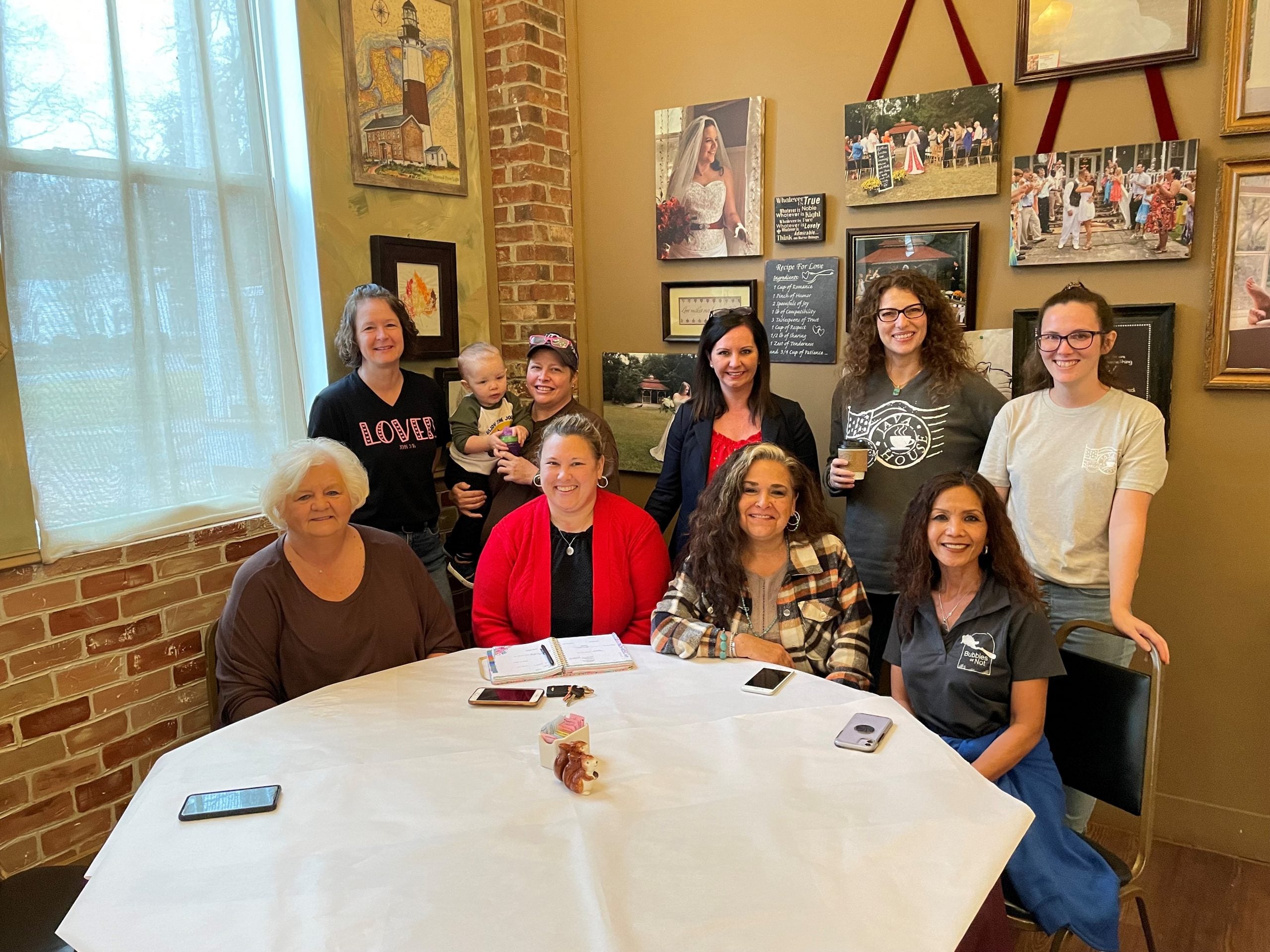Within the last several years, parallel with the growth of the rest of Columbia County, Harlem has seen not only an uptick of local businesses opening and thriving, but most of those businesses have been women-owned.
“What we have here is very unique,” said Debra Usry, co-owner of Grice-Usry Farms. “Harlem was not always like this. I started my business as an 18-year-old kid, and here I am now doing fairly well.”
The Harlem Merchants Association gathered for its monthly meeting on Friday morning at the Acorn Restaurant in Red Oak Manor Bed and Breakfast. Some of the members in attendance were Deborah Brawner, owner of Harlem Java House; Rose Bennett, owner of Bubbles or Not Dive Shop; the proprietor of Red Oak itself, Renee Dean; and Harlem Mayor Roxanne Whitaker.
“We’re proud of our small-town feel, we’re proud of our hospitality, our welcoming of the new residents,” said Dean. “It’s a girl thing.”
[adrotate banner=”72″]
The current iteration of the Merchants Association is now a close-knit group of entrepreneurs who have become an influential force in Harlem’s blossoming, economic viability and visibility. But this hasn’t always been the case, as the Merchants Association has gathered and dissipated over the years. Couch notes that the organization was revamped as a means for burgeoning local enterprises to pursue various improvement projects together.
“It wasn’t very active,” said Merchants Association President Alison Couch, who also owns the accounting firm Couch Consulting. She recalls taking on Brawner as a client, after Brawner opened Harlem Java House in 2016. Later, the two conceived of Ladies’ Night Out.
“We were like, ‘let’s do something crazy,’” said Couch about the beginnings of the annual event, and the latest version of the Harlem Merchants Association. “But then we needed a group to support that.”
That eagerness and openness to ideas has become the Merchants Association’s modus operandi. Harlem is a small but growing town, bustling with businesses and busy with happenings like its annual Oliver Hardy Festival and the Ladies’ Night Out event every fall. These “lady bosses of Harlem” regularly hash out how to help promote one another, posting each other’s events on social media and planning together coordinated events and attractions such as Ladies’ Night Out, the St. Patrick’s Golf Car Parade and the upcoming Mimosa on Main Street. Part of the woman’s touch that has proven so lucrative, the group believes, is a warmth and a desire to let people feel comfortable in town.
“We can even throw out ideas here, and they’ll bounce off one another. It’ll turn into something bigger than what the original vision even started,” said Stephanie Lewis, co-owner of Southern Smoke Market. “I don’t feel like a lot of men sit down and do it like that.”
The shift in influence to a majority of female-led merchants was gradual, organic and, Whitaker notes, not met with much opposition from the town’s male population, largely because whatever this arrangement was doing was working.
“The businesses are coming,” said Whitaker. “They have a vested interest in us.”
Whitaker’s husband, Mark Whitaker, owns the Main Street Treats ice cream store. He purchased the dessert shop, formerly Yoder’s Dairy Barn, in April 2021. Roxanne Whitaker sees this as both an effect of the women’s work in Merchants Association, and their successful enterprises, and their influence in encouraging shopping in Harlem, whether it’s for groceries, medicine, eating out on a Friday night or getting their hair done.
“That’s not a push back,” she says. “I don’t know if the city looks at owning, as far as male and female. Just seeing an opportunity not to leave the city to go spend money elsewhere”
[adrotate banner=”20″]
More merchants in town means more development, more attention and more money coming to Harlem. The women in the group attribute this to their openness to one another and their willingness to let every member play to her strengths to the benefit of everyone.
“It’s more businesses and then it’s that this group has the interest of all of Harlem at heart versus each individual business,” said Dean. “And things that are better for the city as a whole are better for each of our individual businesses. But it’s nothing that any of us could have done alone.”
Barbie Graham, owner of Southern Branches consignment store, started her first business in Augusta as a hairdresser years ago, and her recollection of the experience reinforces her appreciation for her hometown.
“No one knew me. No one wanted to know me,” she said. “I have support here.”
“That there are a core group of capable, competent and enthusiastic women consistently coordinating the flourishing of Harlem is proving an inspiration on local girls and a positive influence on Harlem sons.
“I have a daughter, and many of us have daughters, and it really thrills me for her to look around and see and see that all women, business owners are strong and work hard, with a female mayor.”
The steadfastness and friendship in which the Merchants Association operates not from a pursuit of the bottom line, but from a passion for the businesses themselves, most of them family businesses, and the overall the welfare of the town.
“I think just to me, with my mom and my sister seeing it as ‘this is our family business,’ this is about Harlem,” said Dean. “Harlem needs us, we’ve got to stick this out. And I think that’s more of a female mentality, than maybe a male mentality.
Skyler Q. Andrews is a staff reporter covering education in Columbia County and business-related topics for The Augusta Press. Reach him at skyler@theaugustapress.com.












